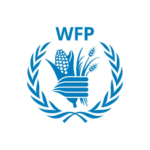The evaluation of the Shora Neza programme utilizes a mixed-methods approach, blending qualitative and quantitative data collection techniques. Designed to be participatory and inclusive, it ensures a broad spectrum of stakeholder perspectives are integrated. Key activities include in-depth desk reviews of program documentation, conducting semi-structured interviews and focus groups with a diverse range of stakeholders such as government officials, UN agency representatives, and smallholder farmers. Surveys are administered to capture relevant stakeholder insights, and participatory ranking methodologies are employed within community settings. The evaluation also incorporates network analysis to dissect relationships and interactions within the program’s framework, particularly focusing on areas like market access and finance. A pivotal component is the longitudinal study design, enabling the monitoring of developmental changes throughout the program’s duration. This comprehensive approach facilitates a multi-dimensional understanding of the program’s effectiveness, its resonance with local needs and policies, and its potential for sustainable impact.
DeftEdge has also been contracted to carry out the upcoming Mid-term and End-line evaluations of the project.

